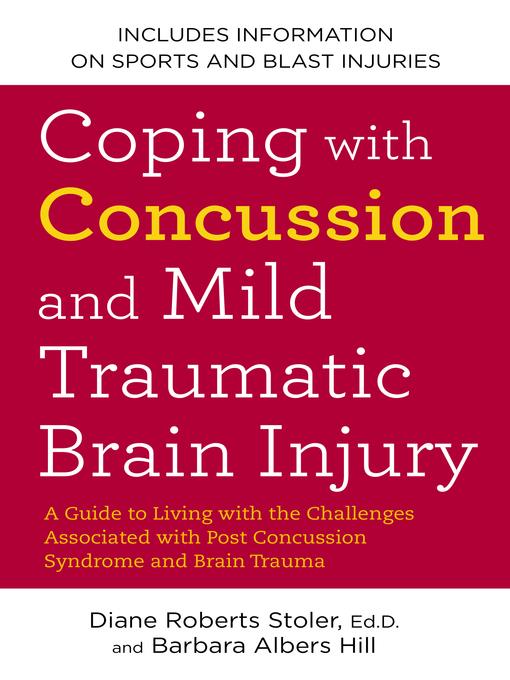
Coping with Concussion and Mild Traumatic Brain Injury
A Guide to Living with the Challenges Associated with Post Concussion Syndrome a nd Brain Trauma
کتاب های مرتبط
- اطلاعات
- نقد و بررسی
- دیدگاه کاربران
نقد و بررسی

Starred review from October 1, 2013
Stoler covers current medical knowledge, alternative therapies and treatments, and diagnostic and therapeutic innovations, clearly presenting physiological, emotional, and cognitive challenges. Essential.
Copyright 2013 Library Journal, LLC Used with permission.

October 15, 2013
Concussions are more common than most folks might imagine. While the majority of mild traumatic brain injuries are the result of motor vehicle accidents, other causes include falls, physical assault and abuse, athletic injuries, and blast injuries. Outcomes can be unpredictable: permanent symptoms, problems that come and go, or complete recovery. Post-concussion syndrome (PCS) is diagnosed when symptoms do not abate within two weeks of onset. Certified health and sports neuropsychologist Stoler, who is herself a brain-injured patient, and coauthor Hill thoroughly cover the treatment of PCS symptoms, including headache, fatigue, balance and coordination disturbances, chronic pain, reduced memory and concentration, sleep difficulty, and behavioral troubles. Financial and insurance issues, rehabilitation, family dynamics, and emotional problems are also addressed. Stoler and Hill provide a practical guide for individuals coping with concussion symptoms and a useful resource for family members and caregivers. The neuroplasticity of the human brainthe organ's ability to regroup and rebuildis notable. Still, patience is paramount in the sphere of post-concussion syndrome.(Reprinted with permission of Booklist, copyright 2013, American Library Association.)

























دیدگاه کاربران